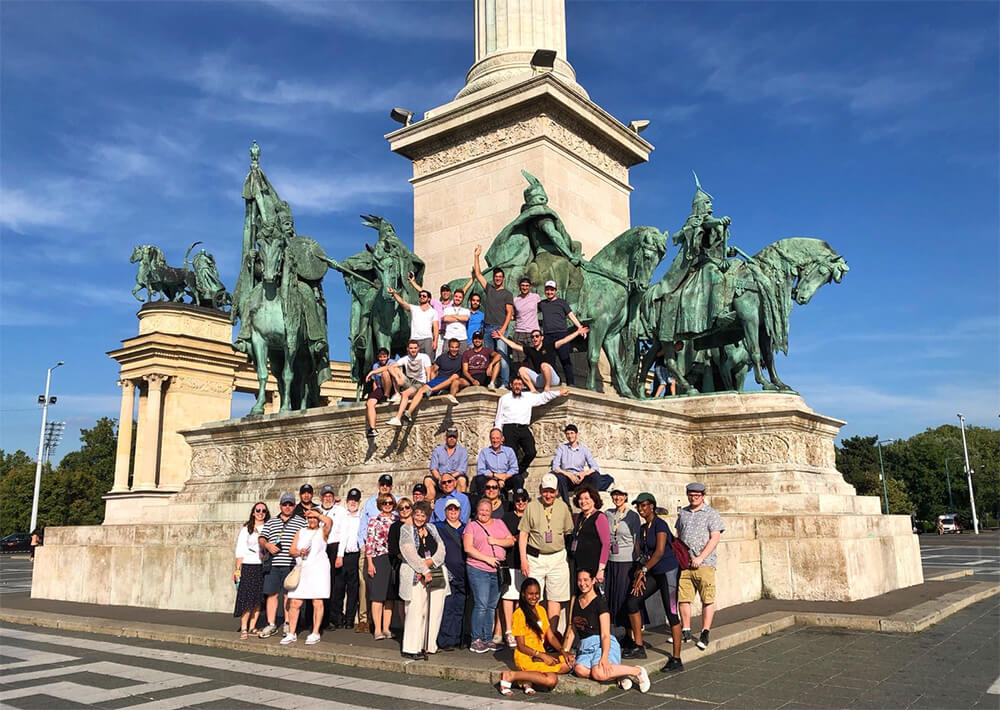A Life-Changing Journey Through Berlin and Budapest
How a Present-Day Trip to Europe Helped Me Understand My Past

Written by Chaim Kalish, an evening Pre-Med student at Touro’s Lander College for Men. He is majoring in Political Science and attended the Touro Summer program to Berlin and Budapest.
Half a year ago, a friend invited me to join Touro’s traveling Holocaust course in Berlin and Hungary. I signed up immediately. Like most Jews my age, I am a descendant of survivors and have a deep curiosity regarding the Holocaust’s development and implementation. More specifically, I desired to learn how a society could embrace or even tolerate mass genocide and whether such a society could ever truly reform. The best way to accomplish this: visiting the locations important to the “Final Solution” and observing locals to see if they had changed as a people over the past 70 years.
To that end, over the course of two weeks in August, I joined a group of Touro students and staff, traversing the streets of Berlin, Budapest, and Màd. In these cities, we toured many areas related to the Holocaust as well as some pertaining to their history. Interspersed between outings, we had the privilege of learning from some of the top minds in the Touro College & University System. Professors Israel Singer, Peter Klein, Stephan Lehnstae, and Esther Boylan as well as her husband, Dean Stanley Boylan, taught us not only the factual events of the Holocaust, but provided political, sociological, economic, and literary perspectives on the events leading up to, during, and following the Holocaust.
In Berlin, we learned how a fringe party on the political right managed to hijack a well-educated, liberal society. As Professor Klein explained on our first evening, Hitler accomplished this by tapping into social and economic anxiety to drive Germany away from unity and towards white nationalism. The next day, we visited the House of the Wannsee Conference and stood in the room where the Nazis completed their plans for the Final Solution of European Jewry. For me, one of the biggest takeaways was that most Jews in Germany tried to escape but were unable to do so because anti-Semitism wasn’t limited to Germany and Eastern Europe. No other no country--including our own--was willing to accept the Jewish refugees.
Overall, the trip gave me a new appreciation for unity within the Jewish community, the importance of fighting back against hateful groups before they can cause further suffering, and the idea that when people are getting hurt, anything but resistance is collaboration.
/prod01/channel_38/media/redesign/assets/images/background-images/locations-background.jpg)
